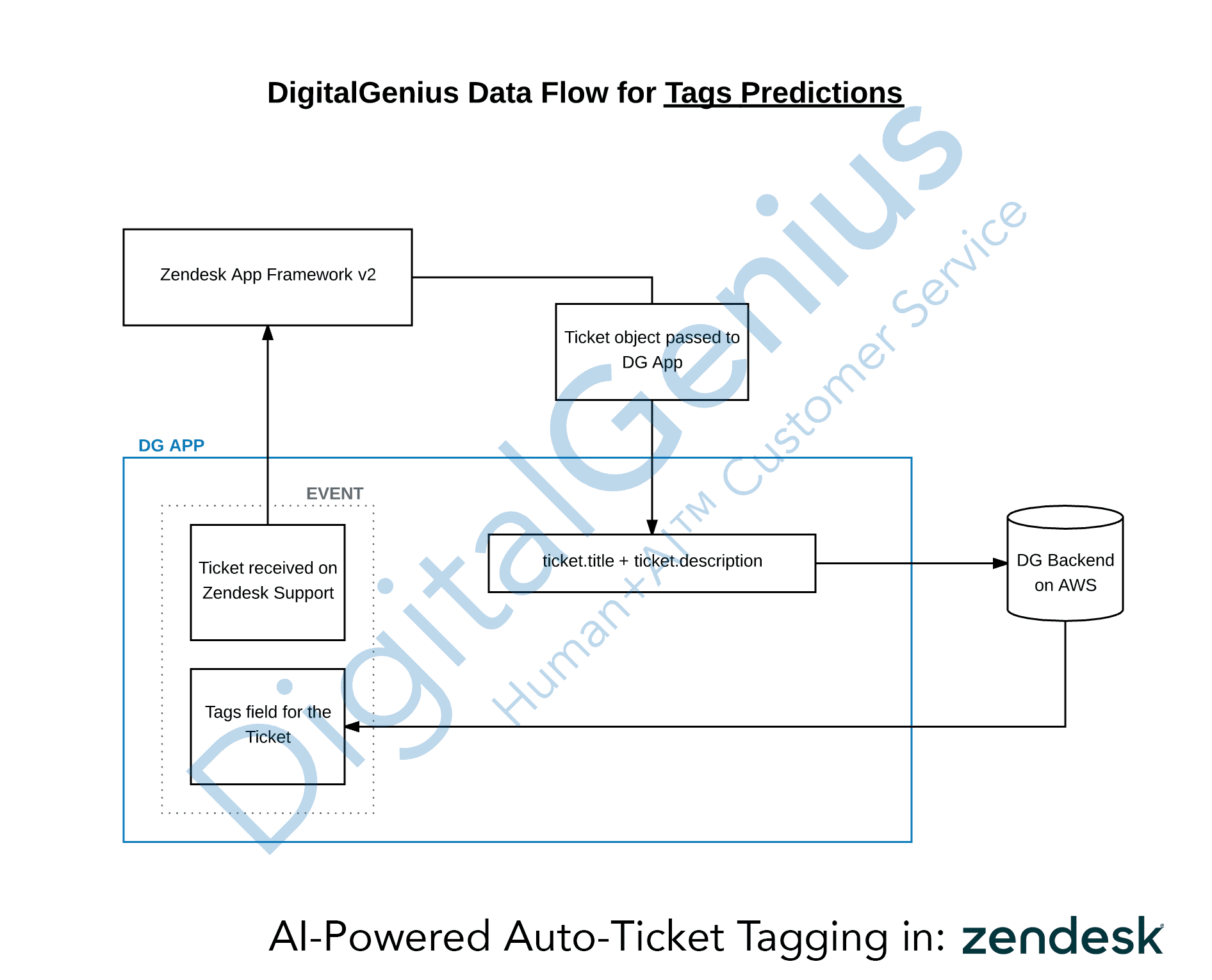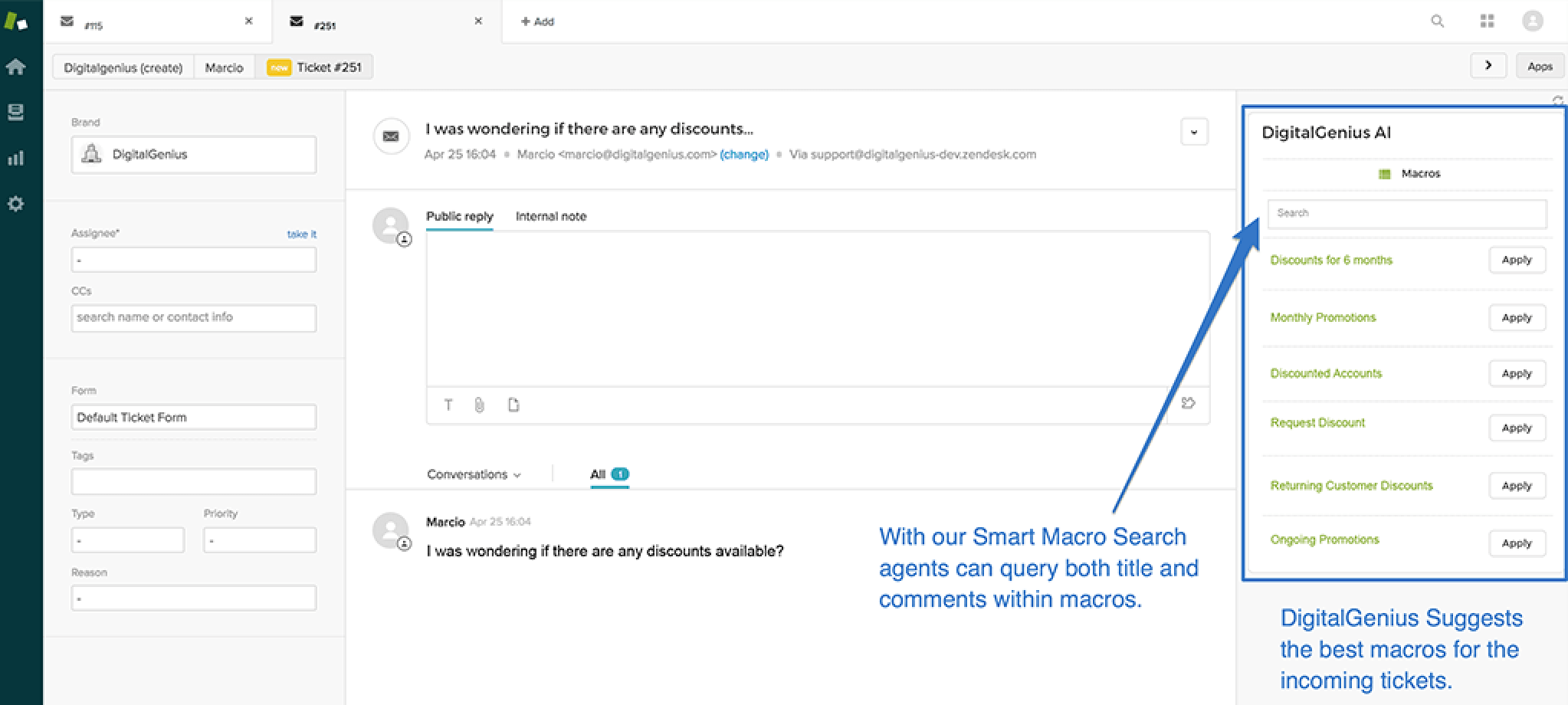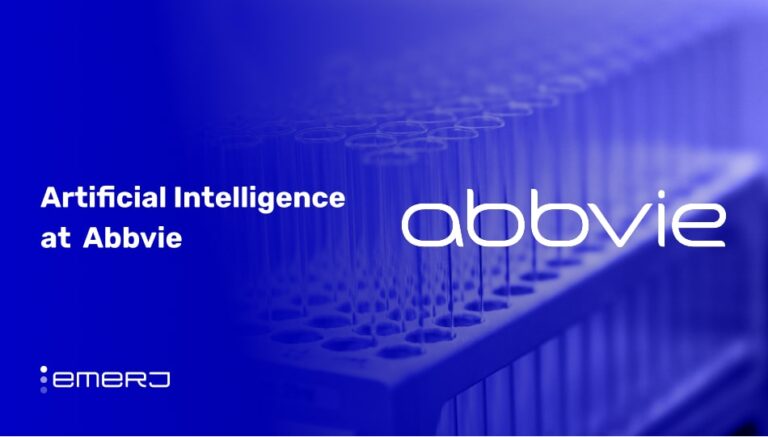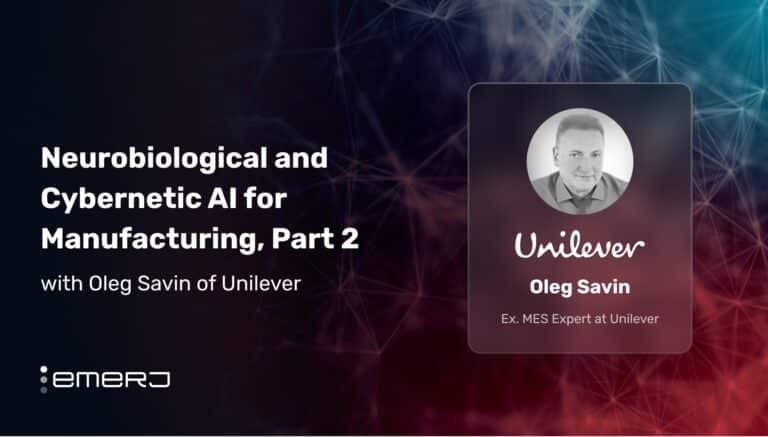Technology Provider: DigitalGenius, an artificial intelligence solutions provider for customer service operations.
User Company: Joybird
User Company Description: Joybird offers handcrafted custom mid century modern furniture in 100+ fabric and leather options.
Industries: Retail, Furniture
Applications: Customer Support, Customer Experience
Problem
The 12 agent team at Joybird was dealing with a growing stream of customer support requests through email, web form, and SMS–which were funnelled into ZenDesk. Most incoming support tickets were being handled manually, without a streamlined use of ZenDesk’s macros (saved templates).
The company was planning on implementing live chat support in addition to its existing channels and was looking to improve support quality and efficiency without increasing headcount.
Actions Taken
The application was installed in Joybird’s Zendesk CRM by the DigitalGenius Implementation Team. The DigitalGenius app was set up to extract end to end conversations, along with meta-data about the tickets handled within ZenDesk. The DigitalGenius Deep Learning Team then trained a neural network on existing tickets within the Joybird CRM. DigitalGenius claims that the algorithm is run in secured Amazon Web Services instances.
The customer tags, as with all the other customer data, live inside Zendesk.
Once it is trained on historical data and the neural network is generated, the DigitalGenius system reads incoming messages and “talks” to the customer Zendesk interface through API calls. Through the same process, it “tells” ZenDesk what tags to apply to the newly-created ticket – based on historical patterns and meta-data context.
After the training had been completed, DigitalGenius Customer Success Managers worked with the Joybird Customer Service team to test and validate the AI predictions before going live and then switched on the app for all their agents.
The technology stack and process behind DigitalGenius is visualized in the graphic below:

Before using DigitalGenius, Joybird customer service team members were manually searching the Macros and manually applying tags to incoming tickets and more often than not, they found themselves spending time, keystrokes and clicks to get to the right response.
The DigitalGenius AI frees up agent time by automating the repetitive parts of the workflow and team leaders or agents then decide where that time is to be allocated – more tickets being handled faster, less queuing, more non-ticket work like researching, macro improvements. Labor costs savings equate to being able to do more with the same human resource, now powered by AI.
Results
The AI is able to predict and apply tags on incoming tickets, in addition to suggesting macros to agents that then applied those macros as “ticket responses” – with minimal changes.
DigitalGenius claims that 70% of Joybird’s incoming requests were able to be supported by automated tags and/or automated macro suggestions – meaning 7 out of 10 of Joybird’s current tickets are being supported by DigitalGenius.

DigtialGenius claims that more tickets being handled faster, with less queuing, more non-ticket work (such as researching or improving the macro templates) – thus improving productivity without adding customer support staff to the payroll.
Transferable Lessons
Customer service is a business function that’s well suited for natural language processing. It is easier to train an AI system of large volumes of past data if this data is streamlined into a specific format, and it is also easier when all relevant data (the ticket itself, the replies to that ticket, it’s satisfaction score, etc) is contained within a single system.
In this Joybird case study, all incoming messages – whether coming in through SMS, email, or web form – took the form of “tickets.” In addition, all tickets were collected and handled within a single system – in this case: ZenDesk.
It’s safe to say that this kind of streamlined “tagging” and macro-suggestion will become commonplace for businesses with sufficient ticket volume to train an AI system – but this automation is not without work upfront. It is important to note that forethought and instrumentation. The teams in this case study needed to:
- Integrate the AI system with the customer service CRM, allowing for API calls and secure data flow between them
- Determine the ticket categories and appropriate tags related to ticket types. This kind of work is abstract, and must have been heavily informed by the customer support manager at Joybird. Determining the difference between a “refund request” and “order cancellation” can be vague, and determining hard rules and suggestions for customer support staff is sometimes challenging. This kind of forethought is not currently in the purview of AI, but is firmly in the hands of the humans who set up the systems (and must be heavily influenced by the relevant subject-matter experts – in this case – the support staff at Joybird).
- Run past customer service data through the AI system in order to train and calibrate the system to automate the right tasks (in this case: Tag applications and macro suggestions)
- Then, DigitalGenius and Joybird carefully observed the initial automations, tweaking the system to ensure that it was calibrated properly to deliver the right tags and macro suggestions over time
Business leaders who aim to realize the benefits of artificial intelligence (and in this kind of customer service setting, there are certainly many benefits) should understand the required instrumentation, integration and testing required to get them functioning. The vendor-client collaboration at the onset of this kind of project is critical, and – at least for the time being – companies like DigitalGenius Without this understanding, it would be difficult to project an ROI on such an AI application.
(Readers with a more explicit interest in text analysis case studies may be interested in reading our full article titled “Business Applications of Natural Language Processing”.)


















